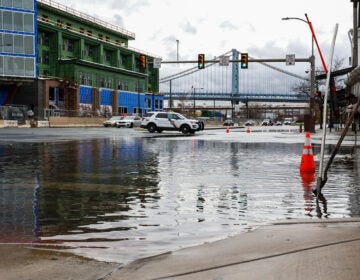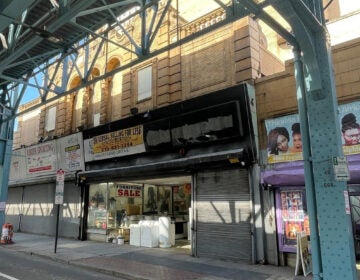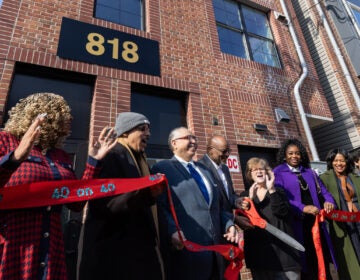How Philly’s 4 new City Council members plan to address trash, transit, and trees
“We're in an emergency place,” one incoming council member said. “We've got to take emergency, immediate actions.”
Listen 1:17
From top left, new Philly City Councilmembers Nina Ahmad, Jeffrey Young, Nicolas O'Rourke, and Rue Landau. (Photo of Nina Ahmad: Kimberly Paynter/WHYY; Photos of Jeffrey Young, Nicholas O'Rourke, and Rue Landau courtesy of respective campaign websites)
This story is part of the WHYY News Climate Desk, bringing you news and solutions for our changing region.
From the Poconos to the Jersey Shore to the mouth of the Delaware Bay, what do you want to know about climate change? What would you like us to cover? Get in touch.
2024 brings four new faces to Philadelphia City Council.
Their first terms, ending in 2028, will be a key time for reducing the city’s planet-warming emissions, bolstering the city’s resilience to the mounting effects of climate change, and tackling persistent problems like unequal tree cover and illegal dumping.
WHYY News interviewed incoming City Councilmembers Nicolas O’Rourke, Nina Ahmad, Rue Landau, and Jeffery “Jay” Young about their plans.
“We’re in an emergency place,” said Landau, who wants the city to reach carbon neutrality by 2035 — 15 years ahead of the 2050 goal that Mayor Jim Kenney committed to. “We’ve got to take emergency, immediate actions.”
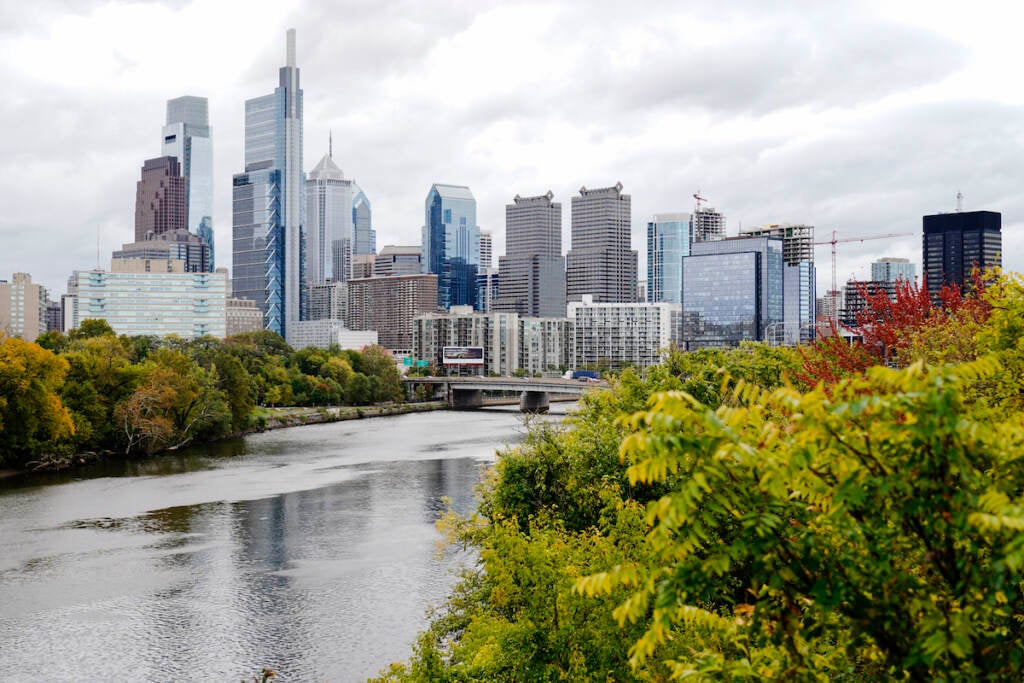
Natural gas and PGW’s future
Several of the incoming council members want to see the city-owned natural gas utility, Philadelphia Gas Works, transition to a business model that’s not centered around planet-warming fossil fuels.
Natural gas is the top source of climate pollution from Philly’s residential buildings, according to the city’s latest inventory, which measured greenhouse gas emissions in 2019.
PGW released a “diversification study” in 2021 that recommended further study of three potential paths forward for the utility: geothermal energy; expanded weatherization; and harvesting landfill or sewer gas. Last year, the utility included money in its budget for a geothermal energy feasibility study. But many see PGW as moving too slowly, as it continues to invest in replacing old natural gas pipelines.
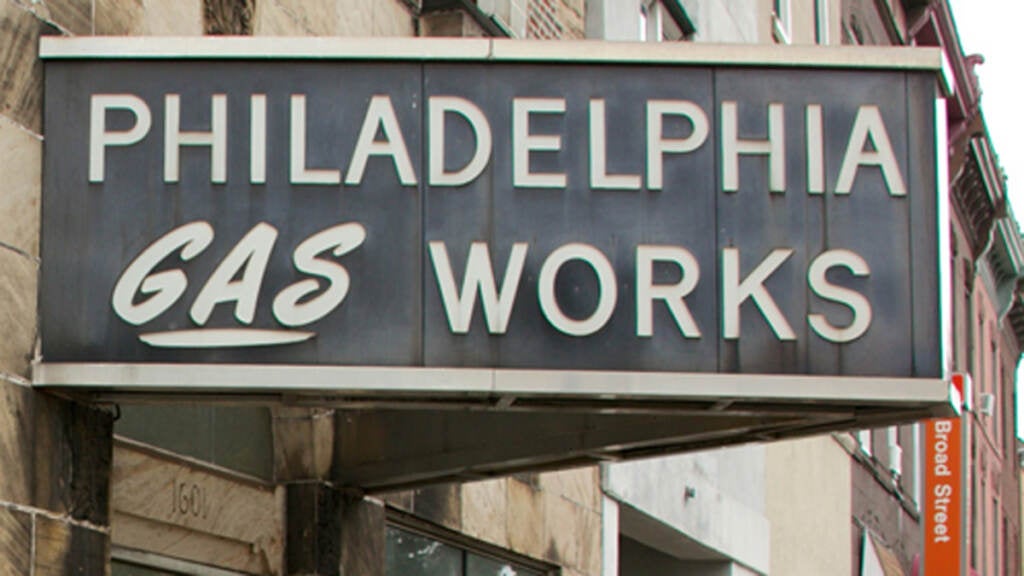
Ahmad wants PGW to look at ways to be more “environmentally friendly,” with policies that don’t contradict the city’s 2050 net-zero commitment. O’Rourke wants the utility to come up with budgets and business plans that match the city’s goals for phasing out fossil fuels, with “transparent processes that allow full public participation.” Landau wants to see a geothermal network built in Philly to heat and cool homes using the stable temperature underground — a process she says would create jobs.
Landau said she’d also support a ban on natural gas hookups for new construction in the city, as some municipalities have done.
“I understand that saying banning natural gas hookups in new construction would be an affront to PGW, but I’m all on PGW’s side,” Landau said. “Let’s make sure we’re hitting the market in a different way. Let’s grow PGW.”
O’Rourke and Ahmad signaled an openness to such a ban, with Ahmad saying it would require a massive public engagement campaign and O’Rourke wanting to ensure it would not disproportionately impact overburdened communities.
“In governance, especially when we have to make such drastic shifts … we ought to be willing to do things that feel substantively different,” O’Rourke said. “That may mean saying, ‘Hey, let’s put a moratorium on this so we can hard shift the ship’s direction.’”
Young takes a more conservative approach. He said a ban on natural gas hookups in new construction could be a possibility in the future, but that “time will tell.”
“Natural gas is something that we can use to fuel our economy until we are fully at a stage where clean energy is readily abundant,” Young said. “It’s important that we use the cleanest form of fossil fuels as possible until we get there. I think Pennsylvania in particular has the resources to provide opportunities for folks in that arena.”
Transportation
Transportation is a focus for several of the new faces on council.
“I want to push our transit system to be one of the best in the world,” O’Rourke said.
The city’s most recent greenhouse gas inventory showed that planet-warming emissions from transportation — including cars, trucks, buses and planes — were rising. But the incoming members of council want Philadelphians to have low- and no-emissions alternatives that are safe, clean, affordable, and reliable.
O’Rourke wants bike infrastructure expanded in Philly’s majority Black, brown, and low-income neighborhoods. Landau wants to see more traffic-calming measures or other strategies to make walking and biking safer.
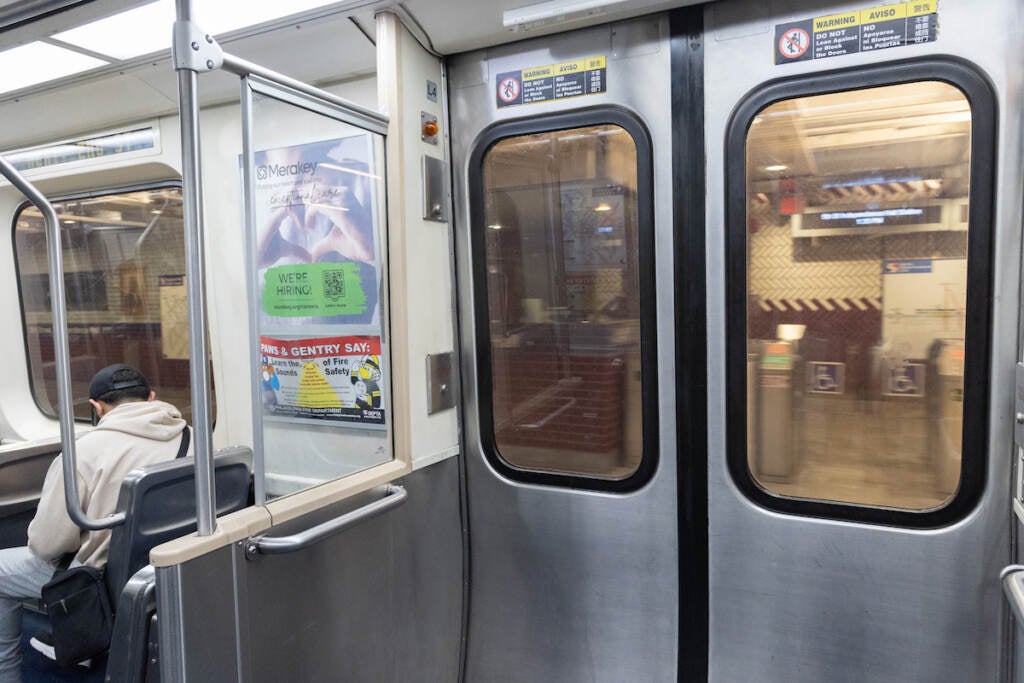
Young thinks the city should encourage more Philadelphians to ride SEPTA with tax credits or other incentives.
“We need to ensure that our public transit system has the infrastructure necessary to carry our city into the future with low emissions,” Young said. “I want to get our residents comfortable riding public transportation.”
Ahmad, who drives an electric car, also wants to see more electric vehicle charging stations built.
“I am constantly cautious about, ‘OK, how many miles do I have left? Where am I going to be?’” Ahmad said. “Unlike our gas stations, which are everywhere.”
Illegal dumping
Stopping illegal dumping is another big priority for the four incoming members of City Council.
“Communities are tired and fed up,” Young said. “[Illegal dumping] decreases their quality of life. It’s not safe for our children walking. I think that it’s City Council’s role to provide the resources to really ensure that this type of dumping doesn’t occur in our communities.”
Young and others mentioned the need for more surviellance cameras — which the city already uses — more consistent enforcement, and higher fines.
“Now, it’s just a cost of business for those who are continuing to short dump in our communities,” Young said.
O’Rourke sees illegal dumping as a “magnet” for crime.
“Where violence seems to happen in cities tend to be in the most unkempt areas,” O’Rourke said.
Landau said she wants to tackle the root of the problem, by making legal disposal options more affordable for small haulers and ensuring companies have waste disposal plans before they receive city permits.
Ahmad said she wants to look at illegal dumping through a public health lens.
“Let’s stop it,” she said. “Let us have people have some faith in government by doing this low-hanging fruit.”
Resilience to worsening heat and flooding
Several of the incoming council members want to boost the city’s resilience to the impacts of climate change, including worsening heat, extreme rain, and flooding. O’Rourke said there’s a growing recognition that these impacts aren’t coming — they’re here.
“And it is being felt most acutely in working-class communities of color across the city,” O’Rourke said.
O’Rourke did not name specific infrastructure projects he wants the city to undertake, but said he’ll push to allocate $15 million for the “rehabilitation” of city infrastructure. He also wants the city to match the state Whole-Home Repairs funding with local dollars to make homes more resilient.
Landau also sees the Whole-Home Repairs programs as a climate solution.
“There are folks who are living with leaking roofs and holes in windows,” Landau said. “If we can get those repairs made in a way that also increases the energy efficiency for their households, it’ll be better and bring their bills down.”
Ahmad wants to see the city explore the feasibility of a large-scale program to paint dark, flat rooftops white, to combat the urban heat island effect and to improve the efficiency of homes.
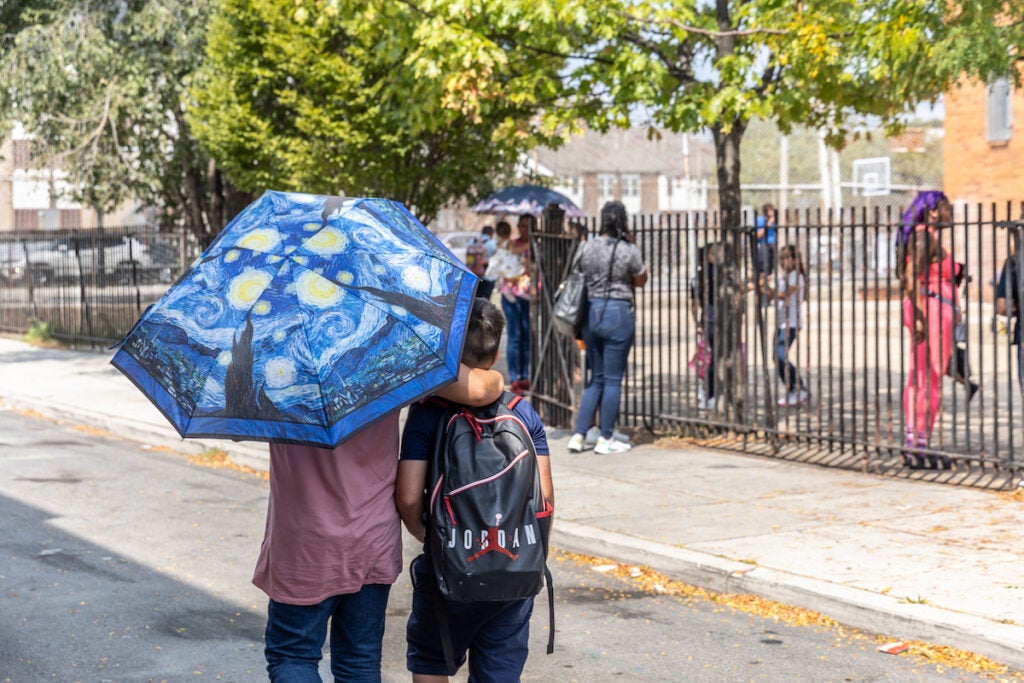
More than half of the city’s public school buildings lack adequate air conditioning, an issue that’s led to numerous early dismissals on hot days. Several of the incoming council members said they plan to push the school district to address facility issues — including asbestos, lead, and mold — faster.
“We saw the labor power of Philadelphia build back the main corridor of the Eastern seaboard … in 12 days,” O’Rourke said. “That is a testament to what is possible, if we had that same commitment to building new schools.”
All of the incoming council members agreed that increasing the city’s tree canopy is important for health and climate resilience. Ahmad suggested the city help smaller developers finance the preservation and planting of trees. O’Rourke proposed a guaranteed jobs program for young people and returning citizens planting trees in their communities. Landau said the city needs to invest more in maintenance of trees, speeding up tree planting programs, and social compacts with developers to plant trees offsite.
“Let’s just put the environment [and] the greater good of the community first,” Landau said.

Subscribe to PlanPhilly
WHYY is your source for fact-based, in-depth journalism and information. As a nonprofit organization, we rely on financial support from readers like you. Please give today.




